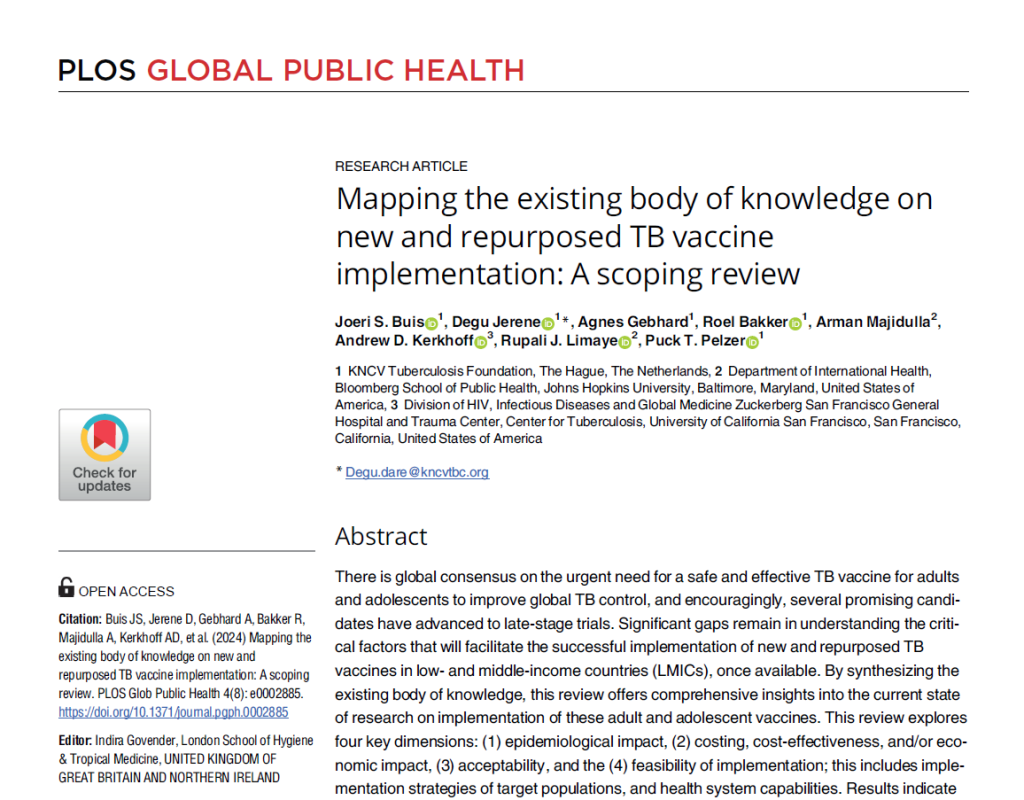On August 22, 2024 PLOS Global Public Health published the research paper titled “Mapping the existing body of knowledge on new and repurposed TB vaccine implementation: A scoping review“. This study explores the current research landscape on implementing new and repurposed tuberculosis (TB) vaccines in low- and middle-income countries (LMICs). According to the evidence, new TB vaccines could save millions of lives in these regions. Effective implementation will be pivotal for maximizing public health impact once new and/or repurposed TB vaccines are available.
Addressing the global need for TB vaccines
In the scoping review, Buis et al. emphasize the urgent need for safe and effective TB vaccines for adults and adolescents, which could significantly enhance global TB prevention efforts and help achieving the targets of the World Health Organization End TB strategy. Several promising vaccines are currently in late-stage trials, with approximately 17 in the clinical development pipeline. However, the authors identified significant gaps in understanding the factors that will influence the successful implementation of these vaccines in LMICs.
These gaps include country- and target group-specific epidemiological and economic impact, acceptability and demand for a vaccine, and the readiness of health systems to roll-out such a vaccine program.
The following vaccines are being tested for their potential to prevent TB disease or prevent tb infection with intended use in adults and adolescents:
- MIP
- VMP1002
- GamTBvac
- MTBVAC
- BCG (re)vaccination
- M72/AS01E
Modelling studies identified in this review highlight that potentially, new TB vaccines could save millions of lives and be cost-effective in most LMICs. Outcomes may vary depending on various factors such as vaccine efficacy, coverage, and the specific country context. For communities heavily impacted by TB, the introduction of effective vaccines could drastically reduce TB incidence and mortality rates including catastrophic costs, improving their overall health and public health outcomes.
Understanding vaccine acceptance and implementation feasibility
The authors highlight potential barriers to vaccine acceptance, such as TB-related stigma and the cost of vaccines, as well as enablers like low pricing, community engagement, and increased public awareness. Various strategies are considered for vaccine roll-out, ranging from mass vaccination campaigns to integration within existing vaccination programs, as was identified in China, India and South Africa. The study underscores the need for tailored vaccine programs that are data-driven and consider diverse country contexts and population groups.
In high TB burden countries, where TB remains one of the leading causes of death, particularly among people living with HIV, new TB vaccines could be transformative. However, the success of vaccine programs will heavily depend on addressing the identified research gaps and ensuring that implementation strategies are country- and context-specific.
Click HERE to access the full article and visit KNCV’s Publications page.

